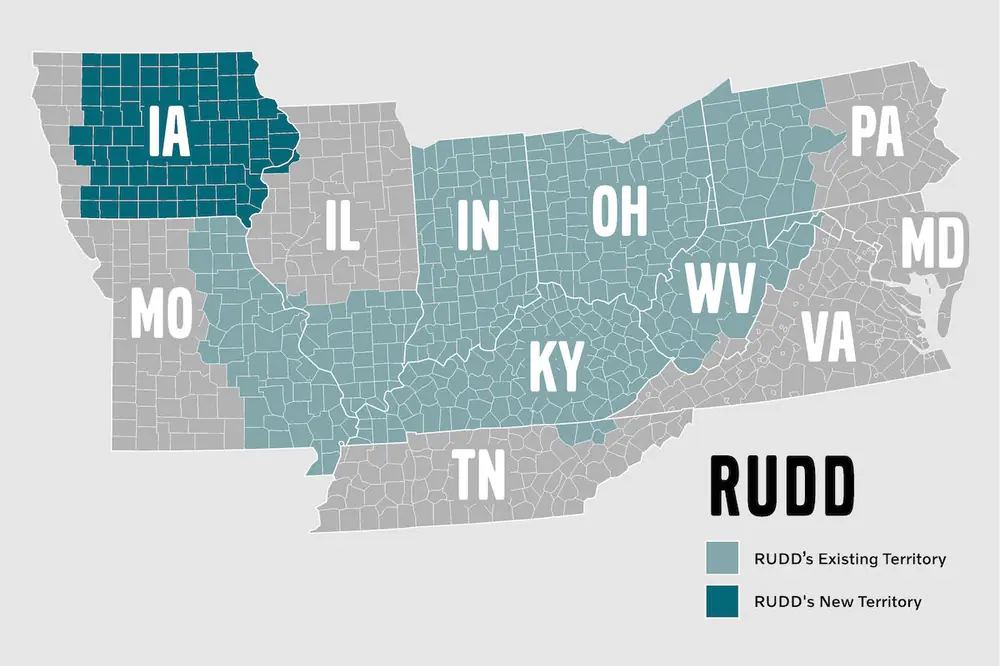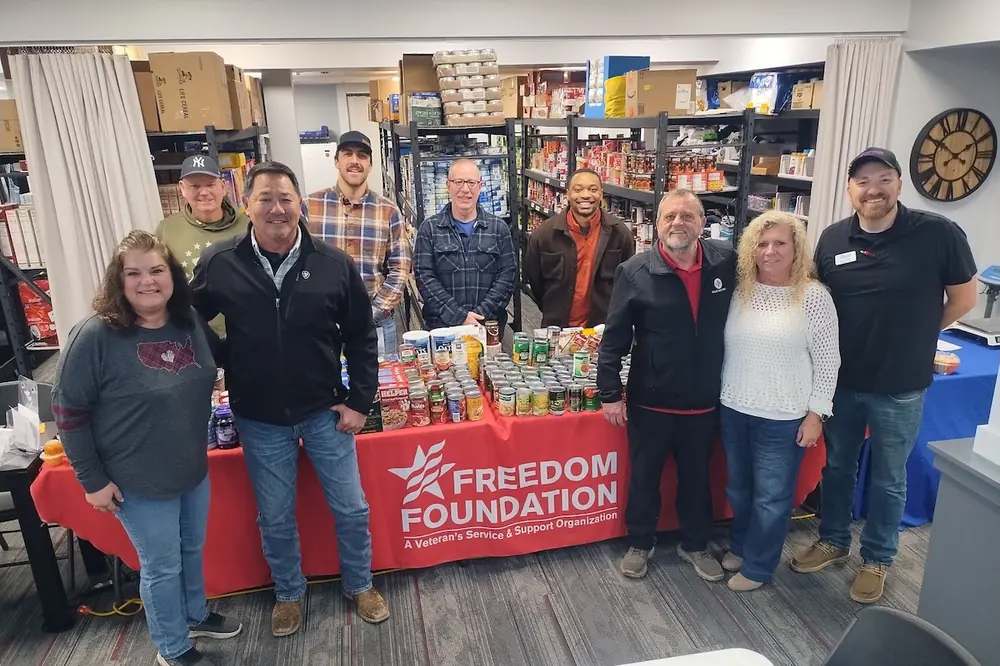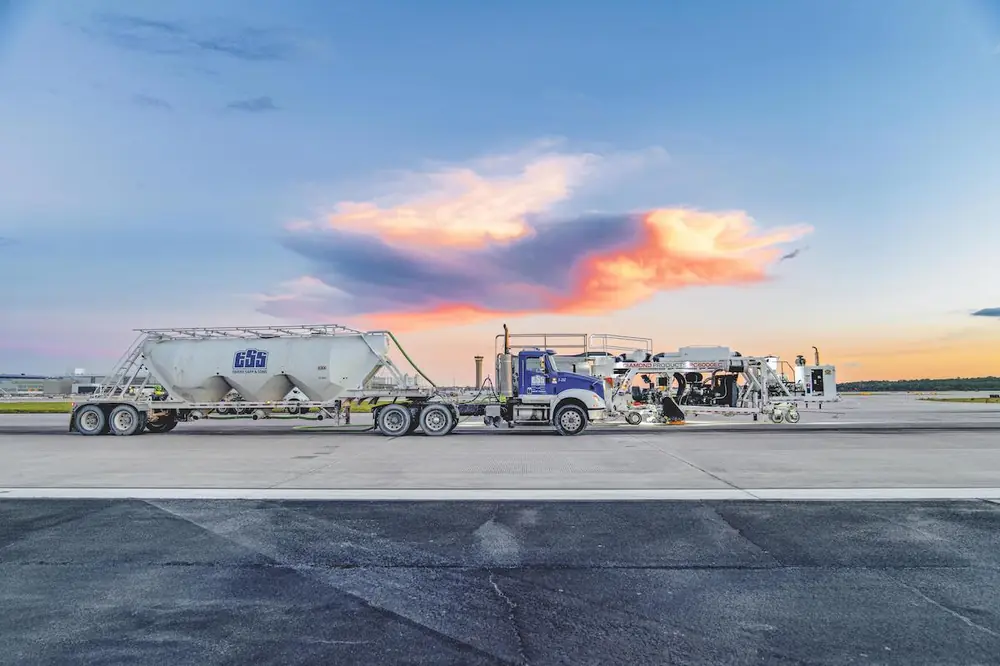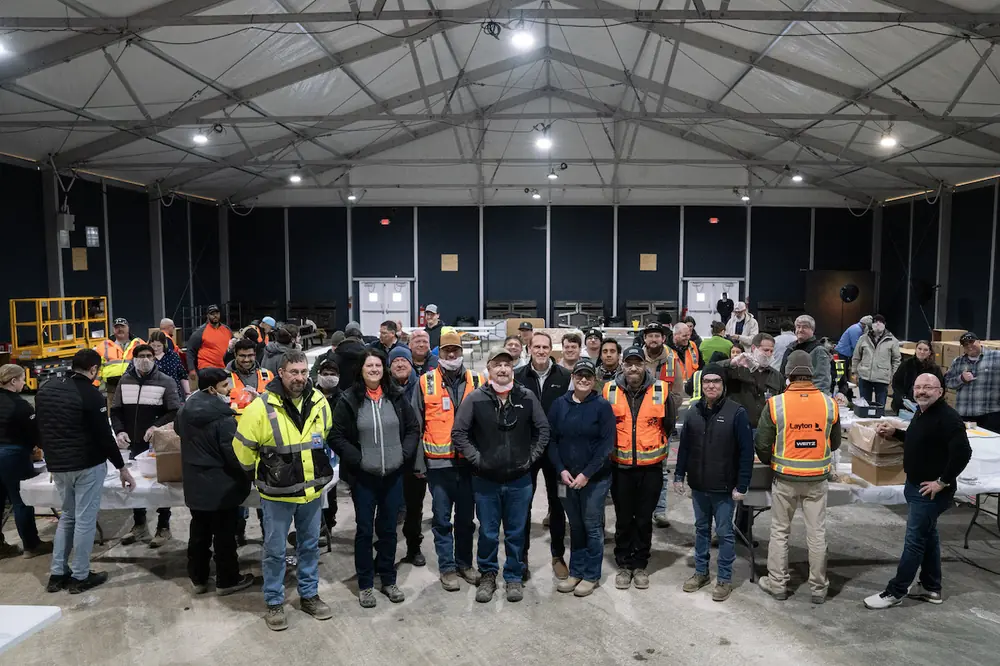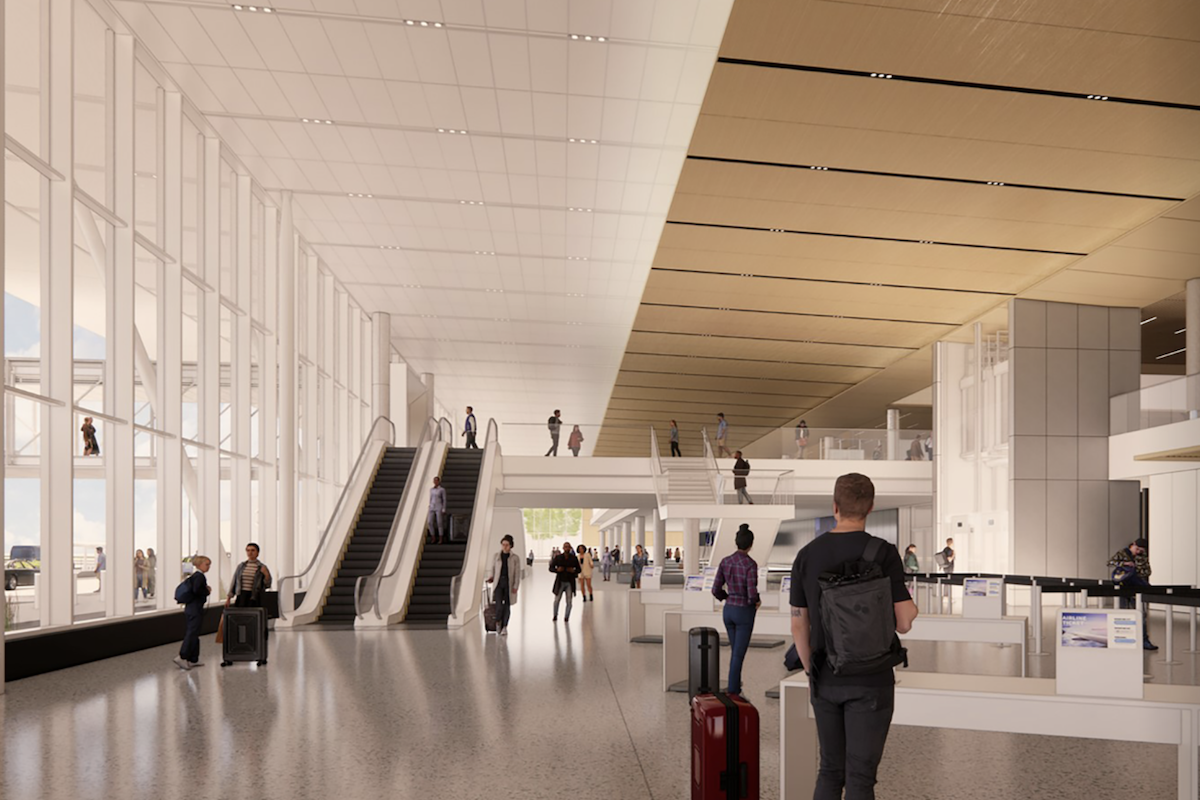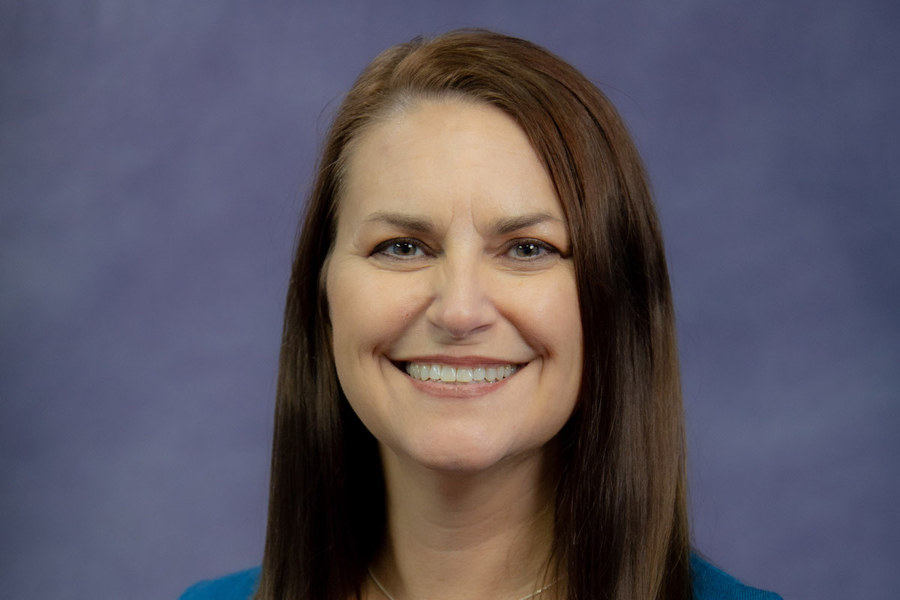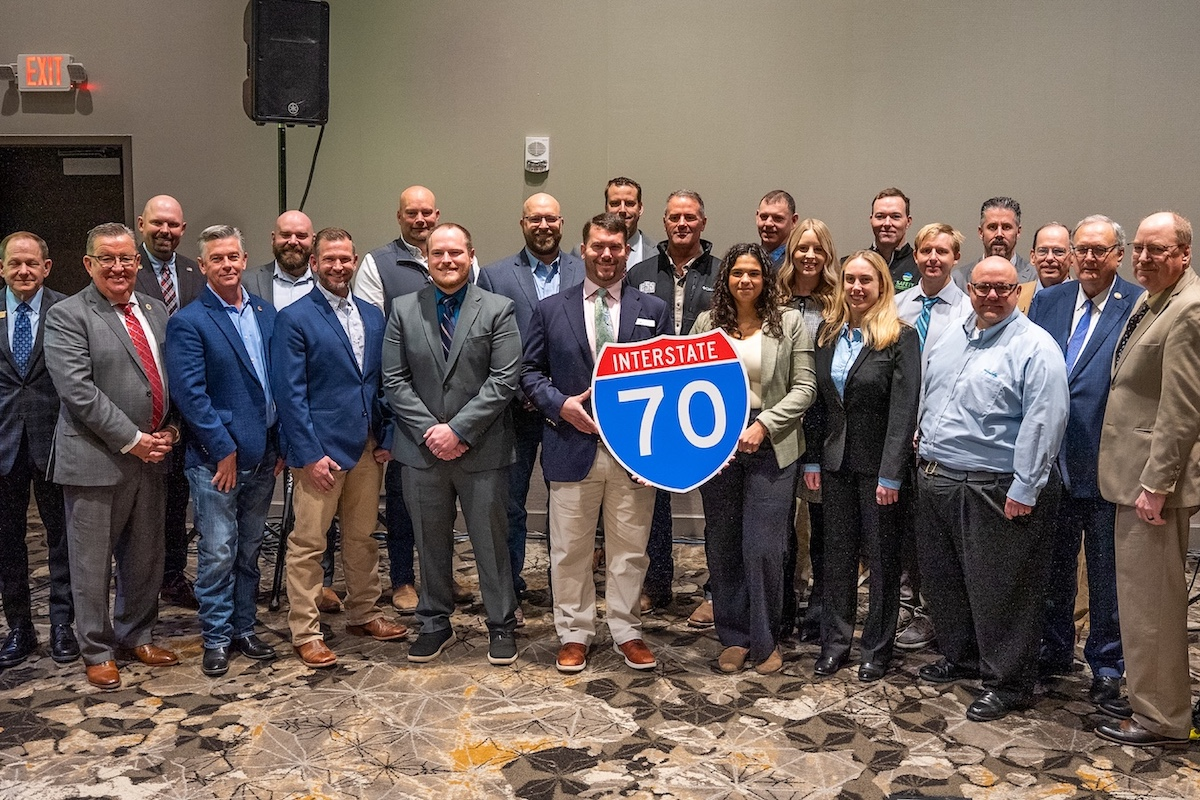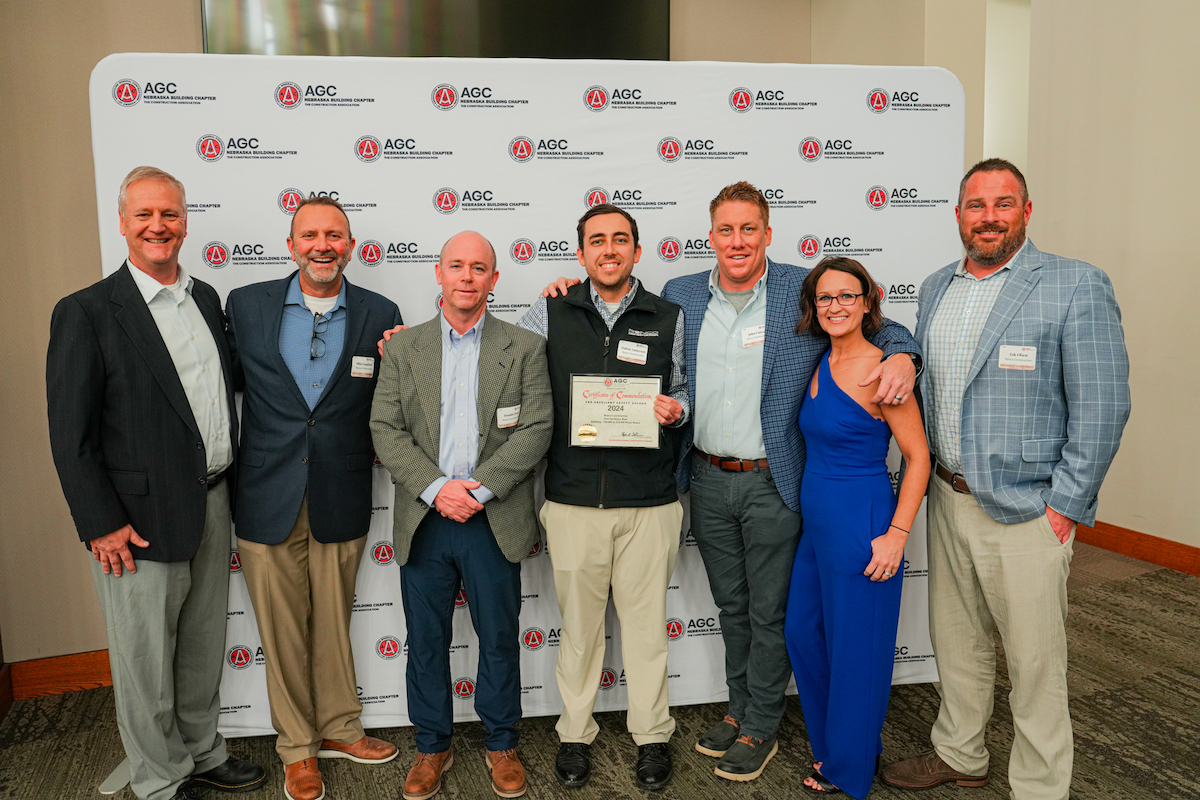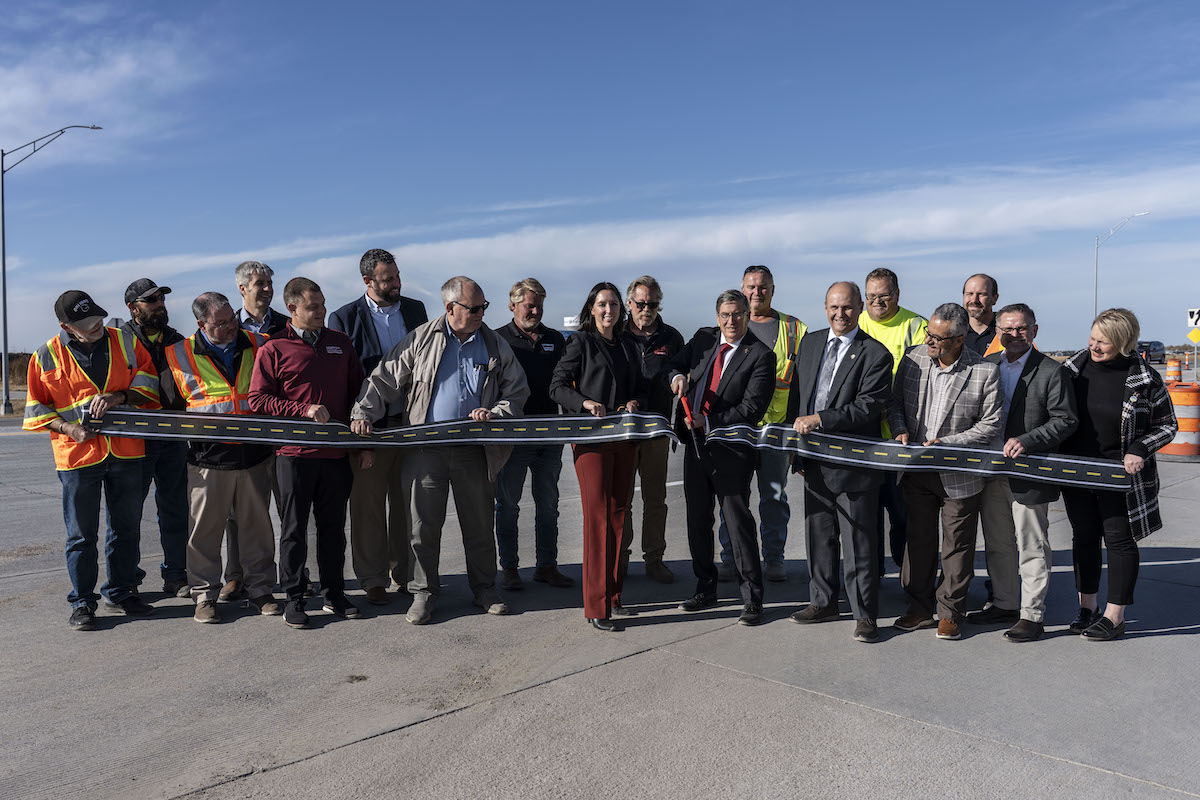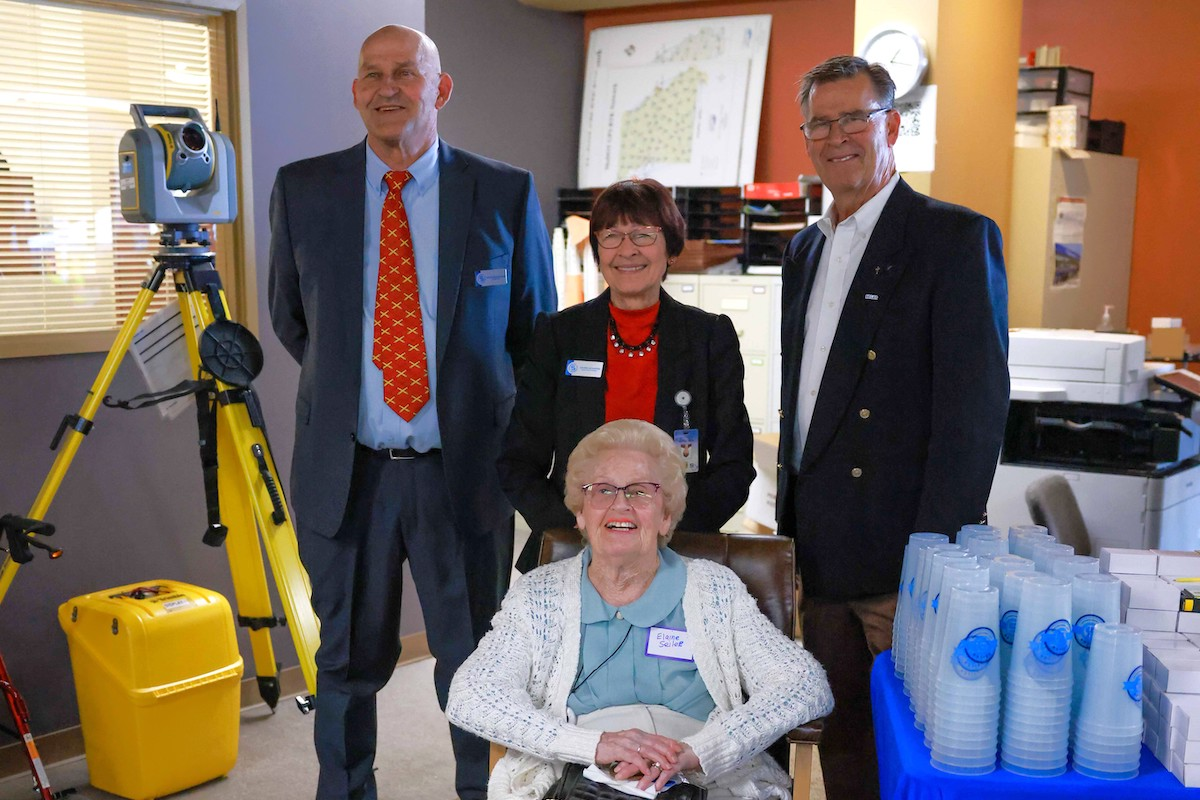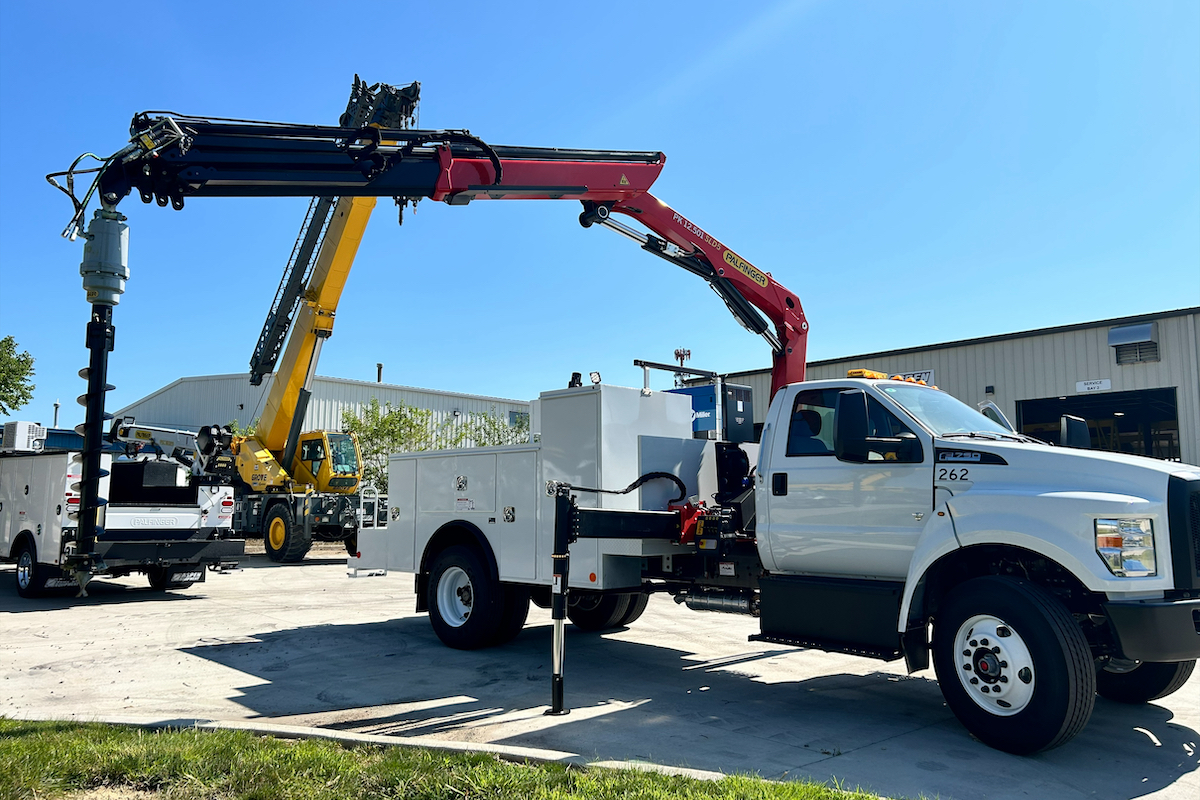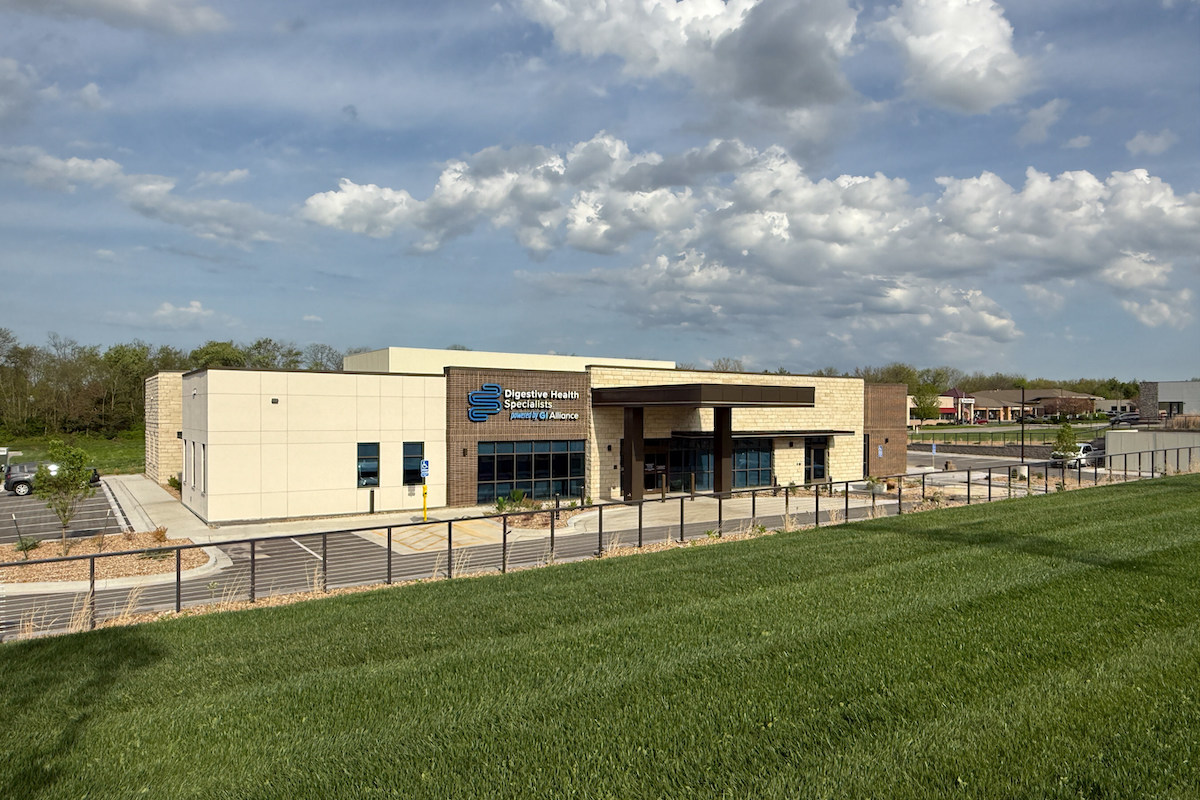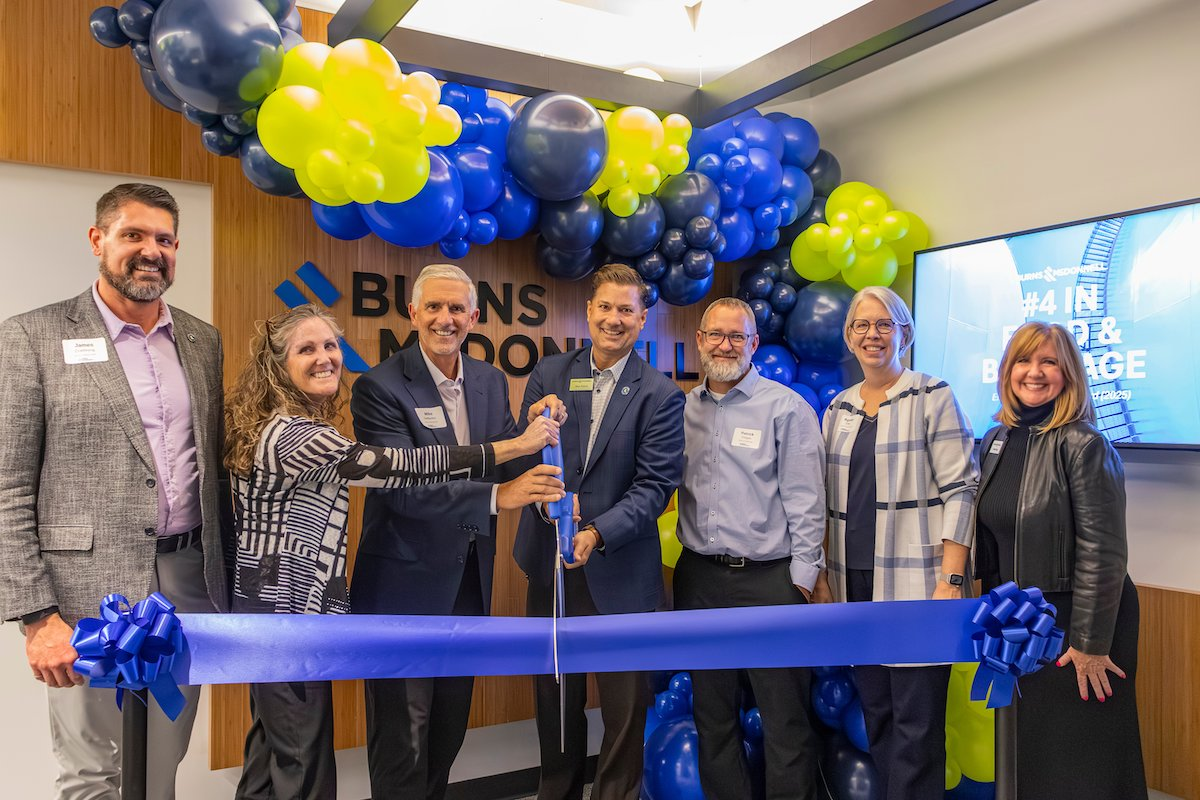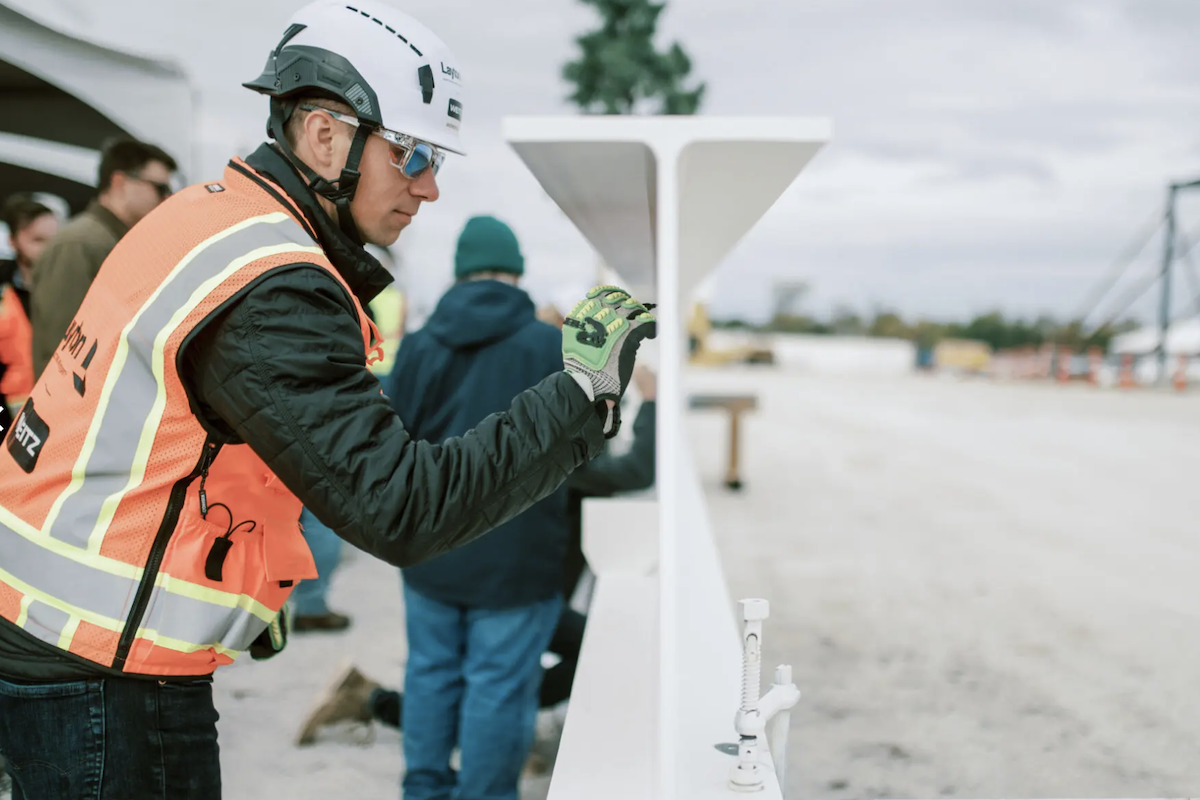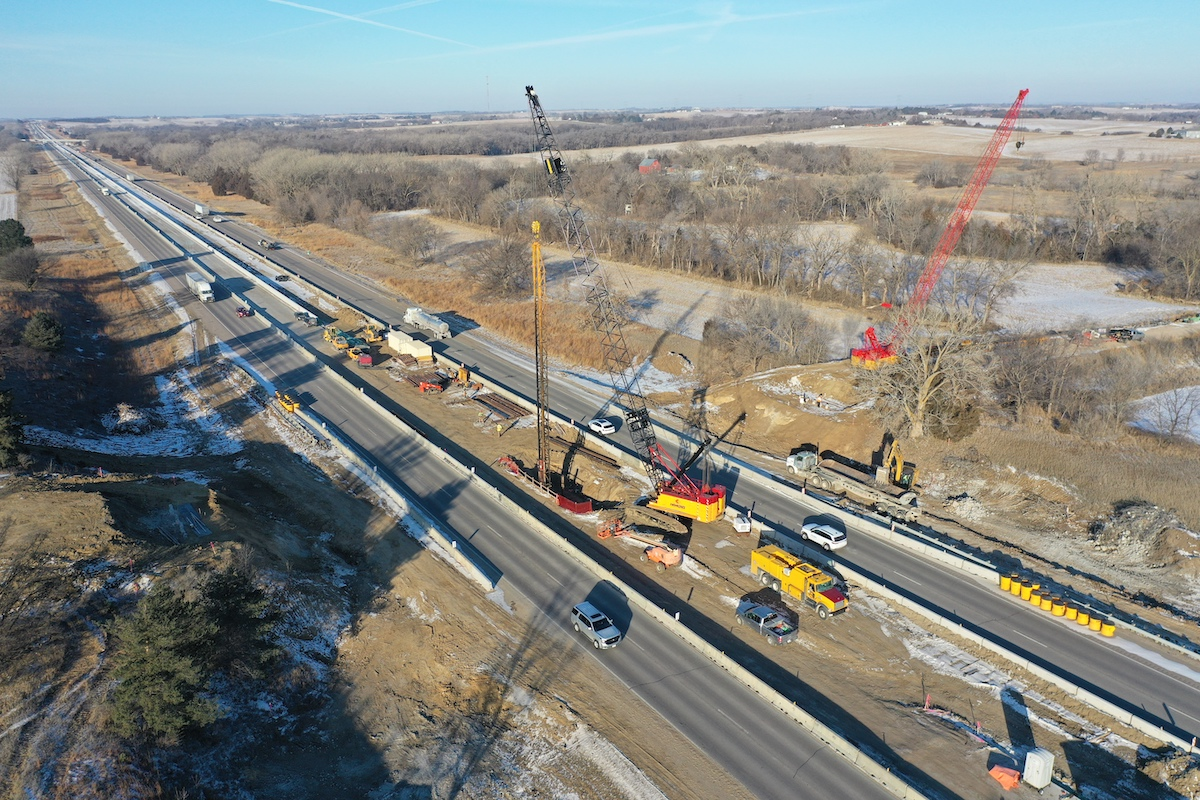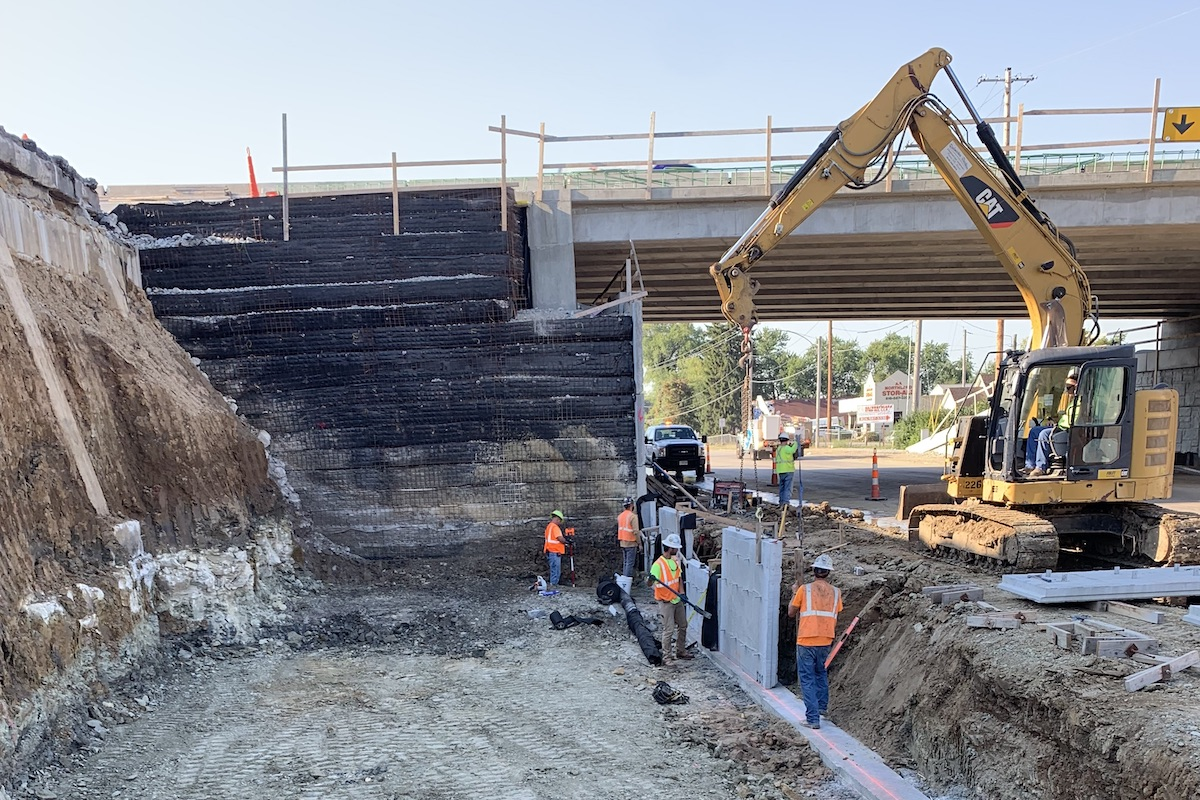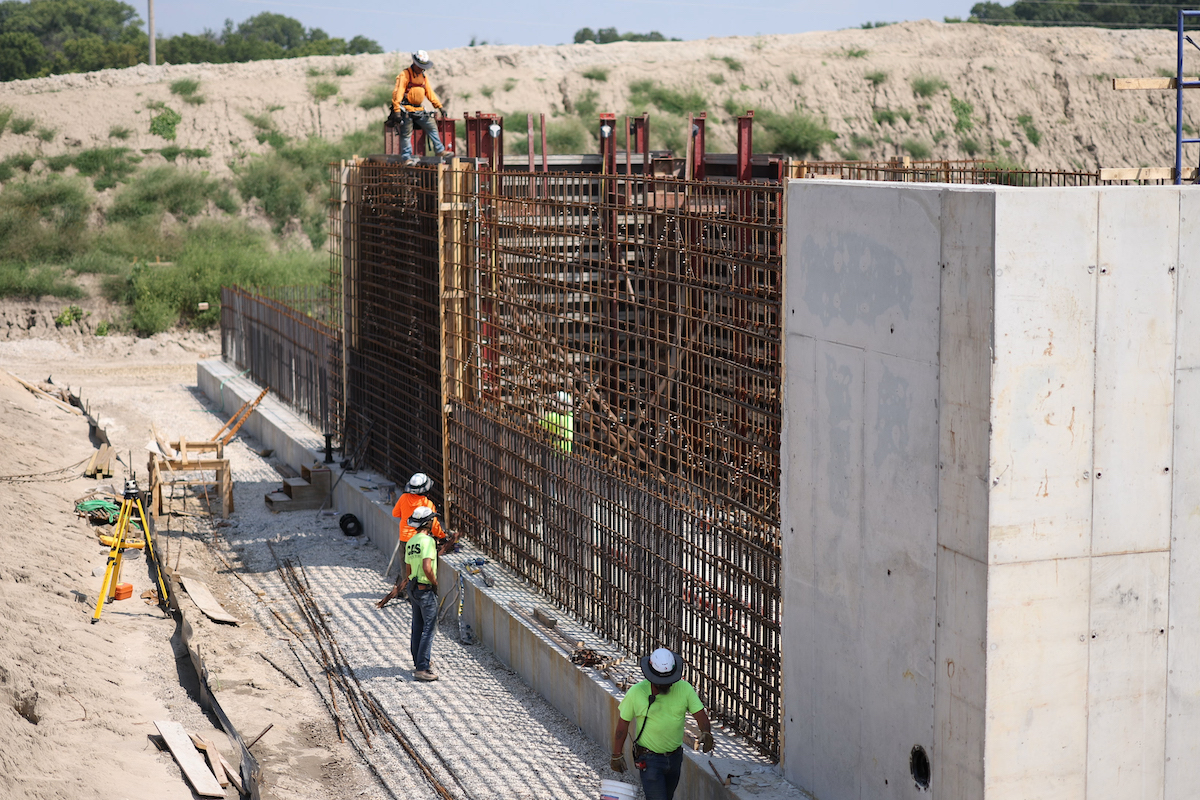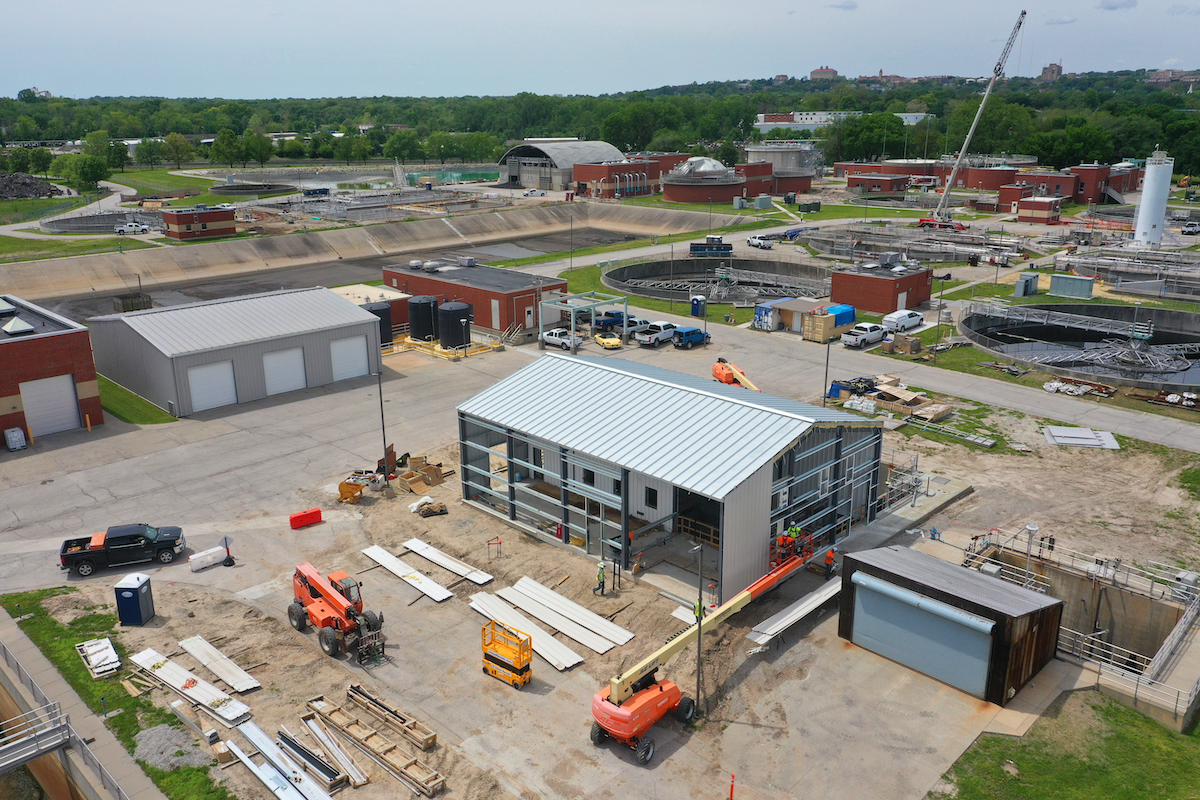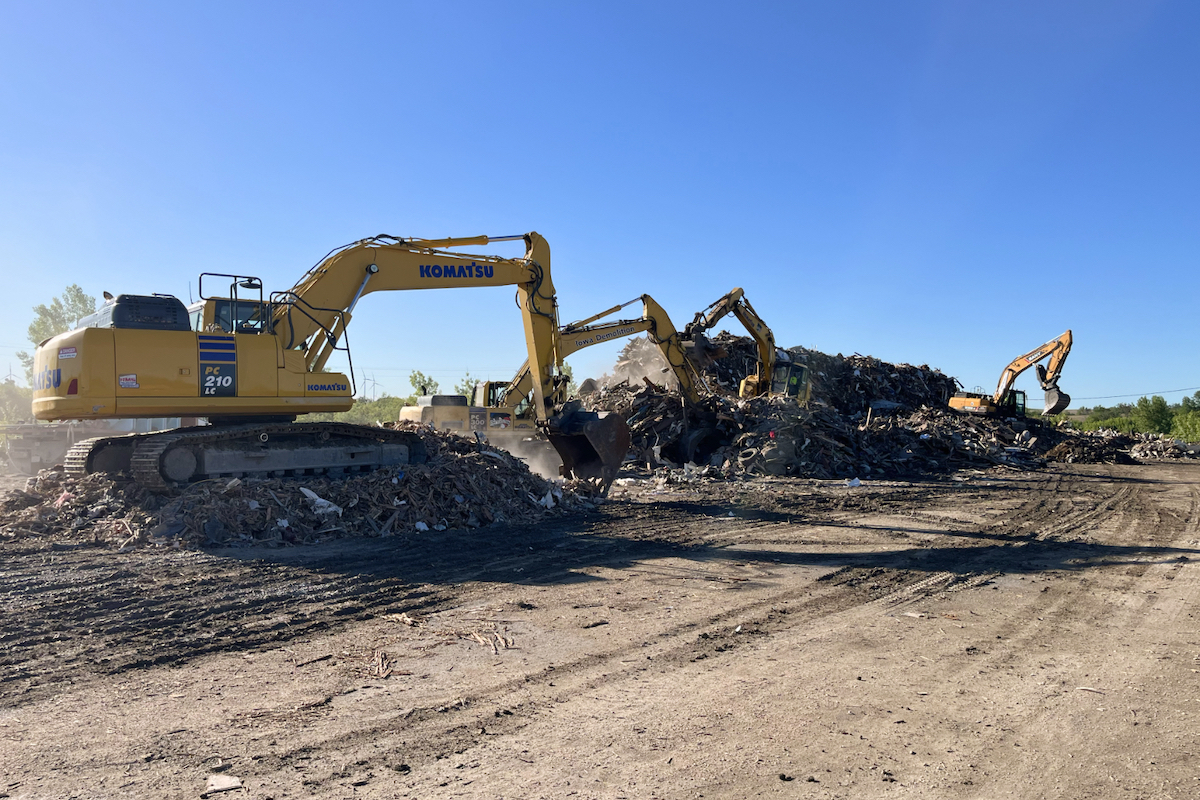“This section of highway has the highest daily traffic count in Arkansas on a non-interstate highway,” says Keith Goff, a Resident Engineer with ARDOT District 6. “It’s a very congested section of roadway.”
The project’s scope includes widening about a 1.7-mile section of road, which carries about 57,000 vehicles per day; creating a Single Point Urban Interchange at Rodney Parham Road, adding a flyover to avoid the crossing of left turning traffic; reconfiguring the intersection with Interstate 430 northbound and southbound; and relocating River Mountain Road. The work includes construction of four new structural steel bridges and the rehabilitation of two existing bridges.
“The department wanted to ensure the contractor building the job was also involved in utility relocations and provided input on the constructability of the project,” Goff says.
Kiewit Infrastructure South Co. in Little Rock received the CM/GC contract, and it immediately began working with ARDOT designers on constructability. Preconstruction took two years, and construction began in June 2020.

| Your local Gomaco dealer |
|---|
| Fabick CAT/MO |
| Road Machinery and Supplies Company |
“Due to the complexity of the traffic control phasing and quantity of utilities in the corridor, it would require a collaborative team approach to finding solutions – from construction to design,” says Rob Broderick, Project Manager with Kiewit. “The CM/GC procurement model optimizes efficiency in the design, schedule and cost on complex or technically challenging projects.”
ARDOT served as lead designer for the project overall. But as Kiewit worked with department engineers early in the design phase, the company made multiple suggestions to speed up the project, presented cost analyses, and streamline construction.
“This delivery method allows us from right upfront to work together to make something constructable and provide the best value for ARDOT,” Broderick reports.
Kiewit phased the construction and held risk workshops during each design phase and held field tours to show some of the high potential risks and conflicts.
“This was not only a great tool for all parties to speak of the encountered risk, it also was a great team building activity,” Broderick says.

| Your local Iowa Mold Tooling Co Inc dealer |
|---|
| Star Equipment LTD |
Kiewit also used 3D modeling and augmented reality (AR) to show proposed solutions to officials with ARDOT.
“We created 3D models of proposed solutions to help illustrate to the team visually the sequence of the construction simultaneous with utilities and to verify no conflicts,” Broderick says. “We were able to even pull in these 3D models in AR glasses to be able to be able to see the proposed design elements more easily.”
Kiewit developed the maintenance of traffic plan, making the work area as large as possible to allow the construction to be built more efficiently and quickly. The contractor proposed shutting down the Rodney Parham intersection with Highway 10.
“We placed a temporary through turn near the interstate,” Broderick says. “That allowed us to close it for one year. It made the construction of elevating Highway 10 more efficient. If we had done it in more phases, it would have added a year to the construction.”
“Due to the complexity of the utility relocations, the limited right-of-way space and proposed roadway alignments, we really didn’t have many options for utilities,” Broderick recalls.

| Your local Komatsu America Corp dealer |
|---|
| Road Machinery and Supplies Company |
Kiewit conducted a thorough subsurface utility exploration and identified more than 500 utility conflicts with eight telecom owners and sewer, water, power, and gas utilities. The company came up with several ideas to reduce the conflicts, including changing the design to go around a major water main.
“We modified the design on the north side, and we were able to eliminate bridge and MSE (mechanically stabilized earth) wall quantities and go with an embankment,” Broderick says. “In addition, it allowed us to avoid relocating the 42-inch water main. This concept saved the project millions of dollars and reduced schedule.”
In December 2021, with half of the actual construction complete, Kiewit was still dealing with relocating utilities.
“We had to overlap construction with the utility relocation,” Broderick says.
Kiewit held one-on-one utility meetings with each individual utility owner monthly throughout the preconstruction. Then during construction, a weekly task force meeting with all owners. That way it allowed the construction team to “establish relationships and come up with solutions that could help all parties progress efficiently,” Broderick says.

| Your local Trimble Construction Division dealer |
|---|
| SITECH Central LLC |
| SITECH Midway |
| Fabick CAT/MO |
One successful innovation was convincing the telecoms to agree to go into a shared duct bank. Rather than multiple owners heading to the jobsite to relocate their lines one at a time, Kiewit suggested creating one duct bank, which the company was in control of and knew its location.
“It will set up future improvements for success, because it is easily located,” Broderick says. “It was a critical concept. We did not have a lot of room to put utilities, so one duct bank made sense.”
Additionally, in regard to phasing, Kiewit decided to build certain elements, such as cast-in-place walls first. Then the utilities had to relocate on top or behind the wall. Broderick estimates that this staged construction overlapped with utilities saved almost a year of construction time.
“We proposed building the entire thing over one weekend, and we completed it in 48 hours,” Broderick says. “If we had done it traditionally, it would have taken four weeks with lane closures one at a time.”
For the first time in ARDOT history, the department allowed the contractor to close I-430, which carries 84,000 vehicles per day. Kiewit used 3D models to show crane placement and verify access.

| Your local Gehl Co dealer |
|---|
| Star Equipment LTD |
“It allowed them to be more comfortable with the risk, and better understand what we were proposing,” Broderick says. We shared with ARDOT that we could be more efficient with less exposure to the traveling public, and significantly decrease the time of construction,” Broderick says.
ARDOT set up detours onto Interstate 30 to avoid flooding local streets with vehicles and advised motorists to find alternative routes.
“It was tremendously helpful for the contractor to be able to reduce their risks, as well as the reduce the risks and inconvenience to the motorists by compressing that portion of the work into a 48-hour window.” Goff says.
The entire project is scheduled for completion in summer of 2023.
“I started here in May of 2018 and worked through the pre-con and the construction phase, and to see all the innovations and designs come to fruition as we elevate Highway 10 is something I am very proud of,” Broderick concludes. “It took a team of people between ARDOT, Kiewit, and all of the utility owners to get to unique solutions that would progress the project despite the complexity.”

| Your local Takeuchi Mfg Ltd dealer |
|---|
| Kirby-Smith Machinery |
| Star Equipment LTD |
Photos courtesy of the Arkansas Department of Transportation



















